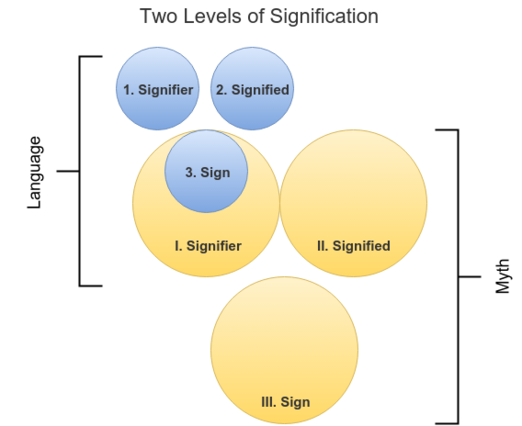I bought this book for freshman rhetoric (or art history?) to fulfill one of my English requirements at Berkeley. I kept the book because loved his essay about professional wrestling and I finally read it over the pandemic.
The book has a surprisingly contemporary feel, since it’s a series of short essays with a deep analysis at the end of the book. In our contemporary era, this would be a collection of posts with an extended coda.
Then again Barthes was French so the essays are deeper than your typical tweet-storm and the closing discussion on semiology was an absolute ass whupping since I haven’t tussled with high theory since 2006.
I’m fortunate to have taken those grad school theory courses before reading that last essay. I don’t remember much from Houston, but I knew just enough to roughly grok his game.

Barthe posits that “mythology” is a second order semiological effect. The “full” Sign of language becomes the “empty” Signifier for myth which is paired with an unspoken Signified to create a new Sign.
The main effect of myth is to distort knowledge in the service of power by making dominant values invisible. Myth makes ideology natural.
In contemporary parlance, mythology hides privilege.
The duty of the mythologist to untangle the web of obfuscation and expose such rhetoric for analysis.
I might be 23 years late to the game, but it was totally worth lugging across the continent and back again.
~
Two years later, my current reading obsession is “ancient wisdom”. Editing this draft reminds me that I need to re-read of this book — the ancients were no less susceptible to corruption than we are today. And if I’m gonna keep writing these notes, I should grab his baton to question today’s mythologies.